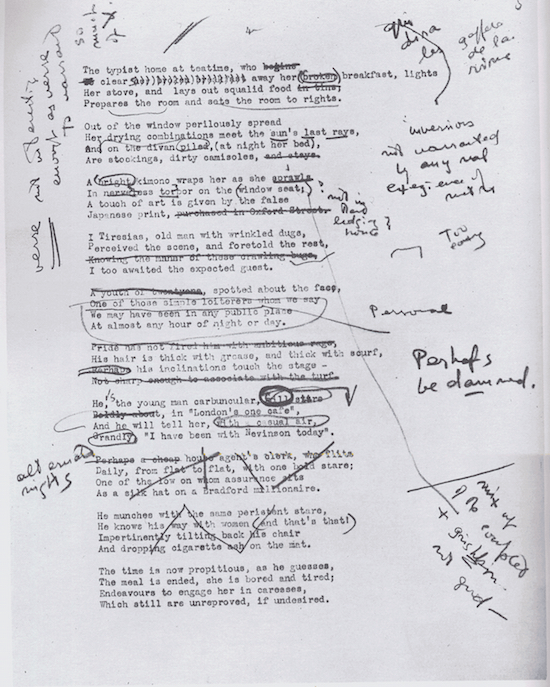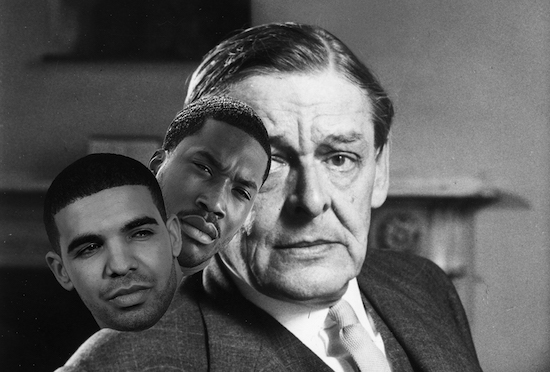"Stop comparing drake to me too…. He don’t write his own raps!"
Unless you live under a rock, or possibly if you’re Graham Coxon who I think we can all agree could do with some time living under a rock, you probably know that in a series of tweets just over a week ago Meek Mill put forth the notion that Drake doesn’t write his own raps.
A couple of carefully managed tit-for-tat (if somewhat drawn out and for the most part not exactly inspired) diss tracks, probably the best week of press Mill has ever had, some fantastic memes, and plenty of verbal from both camps and beyond later only one question really remains: does it actually matter?
To clarify: the term "ghostwriter" is off from the start. Drake, like plenty of performers in hip-hop and beyond, does get input on his music from other artists. But, unlike a ghostwriter, those artists are credited by name for their work and what Mill claims to have "found out" is far from a secret.
Maybe, as this Noisey article points out, it’s kind of a dick move and, in a roundabout way, actually asking for trouble to spout off about the quality of your writing when it’s not all your writing. But it’s not without precedent. And I don’t just mean in music.
If rap is somehow set above other music, beyond pop and all its subdivisions, alone in the upper echelons because of its honesty and its purity, and Drake — positively, negatively and frequently labeled as the "sensitive" rapper — is somehow a fraud by those parameters, particularly in light of the introspective quality of his lyrics, then why not the art form so often touted as the purest form of writing?
An Experiment: Gather together a representative sample of people who have read T.S. Eliot’s ‘The Waste Land’ – not necessarily all at once and actually maybe not in person because that’s liable to be an extremely tedious group of people – and ask them what their favorite line of that not-just-career-but-movement-defining poem is.
Chances are more than a couple of them are going to pick (from a choice of some 433-odd) “I will show you fear in a handful of dust.” Wikipedia even cites it as one of the poem’s most famous phrases, alongside “Shantih shantih shantih”. But, thing is, even ol’ Tom Stearns (aka Old Possum) – posterboy for Modernism, held up as the pinnacle of poetry by Old White Men everywhere – didn’t pull that stuff out of thin air.
Granted he’s changed it up, but that most famous of crippling literary gutpunch one-liners is an allusion to the Christian Burial Rite (that grim graveside stuff: “ashes to ashes, dust to dust” and all that). And, sure, alluding to something isn’t exactly the same as stealing it or paying for it. “Shantih shantih shantih” isn’t just a reference, though – it’s ripped, like an Urban Outfitters headdress, straight from a Sanksrit mantra. It doesn’t end there, either: of “O the moon shone bright on Mrs. Porter / And on her daughter / They wash their feet in soda water” Eliot himself writes “I do not know the origin of the ballad from which these lines are taken” and in fact it crops up again in Ernest Raymond’s Tell England. At best it’s the equivalent of uncredited sampling, at worst straight-up plagiarism.
And, really, discounting anything borrowed from external sources (for the sake of generosity let’s call them Public Domain) let’s not forget we have Ezra Pound’s intervention — his edits and his input way closer to the work of a ghostwriter than Quentin Miller’s — for making the damn thing readable at all:

So what if Drake doesn’t write all his own verses? I don’t always make my own dinner but that doesn’t mean I can’t turn out a superstar spag bol when the chips are down. And it certainly hasn’t stopped Eliot from being one of, if not more or less the most revered poet in English-speaking history.
And, while WWE’s Bret Hart might have inexplicably declared Drake the winner in this particular feud, it’s the immortal words of The Rock that reverberate most loudly. It doesn’t matter.


